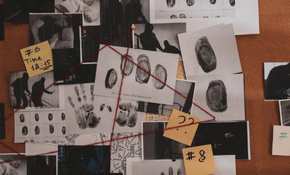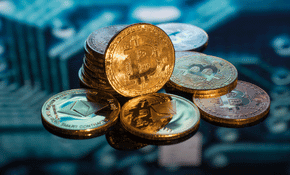With Forex trading, sending money to any part of the world is easy for people, so this sector is often developing. However, the popularity of this sector brought money laundering and terrorist financing risks. Since financial criminals use the money transfer and foreign exchange sector to carry out their illegal activities, the risks of anti-money laundering (AML) in this sector have increased considerably.
What Is Forex (FX) Trading?
Forex (foreign) Trading is the exchange of different currencies in a global market without a center. The foreign exchange market is the most traded financial sector globally, with a maximum of 5 trillion per day turnover. FX trading involves the simultaneous buying and selling of world currencies in this market.
Exchange rates indicate that another currency will replace one currency. It plays a vital role in the business world, as products or services purchased in a foreign country must be paid to use its currency. FX trading is preferred quite frequently due to its convenience. The foreign exchange market is mainly used by central banks, companies, retail traders, and banks.
Forex traders in the forex market are usually banks and fund managers. Besides, corporate company merchants also trade in the financial market. These traders may not think of physically withdrawing the coins right away, or they may not immediately consider currency trade, but they speculate about turning future currency fluctuations into opportunities. In other words, they invest and wait for the currencies that they think will become stronger in the future.
How Does Forex Trading Work?
Unlike stocks, 4x Trading takes place in an over-the-counter (OTC) market, directly between the two sides, not on exchanges. 4x is traded with currency pairs such as Singapore and US dollars (SGD/USD). You predict whether the price of one country's currency will rise against another, and you will take action accordingly.
In currency pairs, the first currency is called the base currency, while the second currency is called the counter currency. When 4x Trading estimates whether the base currency's price will rise against the counter currency. For example, if SGD is thought to rise against the USD, the currency pair is purchased, but vice versa. The currency pair is sold if the SGD is thought to drop against the USD.
The 4x market is managed by a global bank network spread across the four best foreign exchange centers at different time frames: London, New York, Sydney, and Tokyo. Due to the lack of a central location, 24 hours of 4x Trading can be done. There are some different types of 4x trade:
- Futures forex market: A contract is decided to be resolved at a certain date due to the purchase and sale of a certain currency at a certain price.
- Future forex market: An agreement is to buy and sell a certain currency at a future price and date. This contract is legally binding.
- Spot forex market: The physical change of a currency pair that takes place at the point where the trade is made in a short time.
Money Laundering Risk For Forex Trading
It has become a potential target for financial criminals due to the preference and growth of 4x Trading. So this Trading offers huge growth opportunities for criminals. For this reason, regulations in this area have increased considerably. For instance, in the last decade, essential regulations regarding 4x Trading have been made in the USA and England. These regulations have important implications for how they use customers for 4x platforms. Therefore, to detect AML, the 4x sector should be aware of important AML/CTF vulnerabilities related to their services.
Due to the complexity of regulations in different international jurisdictions, as FX trading does not have a single center, a deficit occurs for money laundering in this sector. Moreover, many people use multiple currencies through multiple companies in forex trading. Therefore, FX trading involves risks due to several difficulties in tracking money. Besides, in 4x Trading, it is exposed to AML risks due to inequality between regulatory standards in different jurisdictions.
The differences in AML/CFT regulations between countries and the lack of communication between international financial authorities create criminal financial opportunities. Moreover, Trading offers some anonymity to traders, providing financial criminals a chance to perform money laundering activities. Financial criminals can complete transactions below the thresholds set by regulators anonymously; they are not subject to Customer Due Diligence (CDD) processes.
The Effect of Regulations on Forex Trading
Because of the severe AML risks that Trading has, businesses that carry out this transaction have to comply with AML regulations. In addition, these transactions in one day significantly increased the money laundering activities in this area. Since 4x Trading is a global activity, there are no regulations that comply directly with 4x platforms. However, traders are subject to many regulations depending on their regions. For businesses, the most common regulations are Know Your Customer (KYC) procedures. These regulations require companies to take due care of their customers.
With KYC procedures, businesses can verify their customers' identity and identify customer risks with Customer Due Diligence (CDD) procedures. As with other financial institutions, if forex businesses do not comply with these regulations, and if money laundering and terrorist financing are committed in foreign exchange transactions, regulators will take criminal action against companies.
Forex Trading Red Flags
Customers who hide their identity, send the vehicle to act on their behalf, Politically Exposed Persons (PEPs), and those in a law enforcement investigation are red flags. Some transactions are also referred to as red flag indicators, such as many money transfers, structured transactions involving multiple linked transfers in different countries, transactions in unusual situations, transactions with high-risk countries or online gambling sites, and transactions with non-profit organizations are red flag indicators.
Red Flag indicators can be determined by the Customer Due Diligence (CDD) procedures applied to the customers, as stated by the regulators' suggestions and Transaction Monitoring and Screening procedures for instant control of transactions. After they are determined, these transactions are reported and reported to the required institutions.
How to Prevent AML Risks in Forex Trading?
By complying with the AML Compliance Program determined by the regulators, businesses in this sector can avoid money laundering risks. However, complying with this program manually is not enough to detect crimes, and it is quite time-consuming.
To meet the AML/CFT requirements, trading programs are applied to Forex Trading companies' employees. The AML officer, who is generally in the business, carries out this Trading. Thus, the team's awareness is encouraged. However, this Trading is not sufficient to prevent these risks. That's why companies in Forex trading have to implement appropriate AML software and automate compliance processes to manage AML risks.
Get a real-time overview of how world currencies are traded against each other at Forex HeatMap.
Sanctions Scanner guides money-laundering crimes for all organizations, large or small. With our AML solutions, organizations can easily comply with the AML Compliance Program set by regulators, thus avoiding regulatory penalties. With powerful API support, organizations automatically perform AML control processes in seconds. Sanctions Scanner has essential lists such as global sanctions, PEP, and Adverse Media. Organizations can check their customers 24/7 in an instantly updated database.








